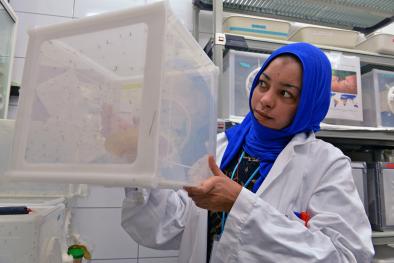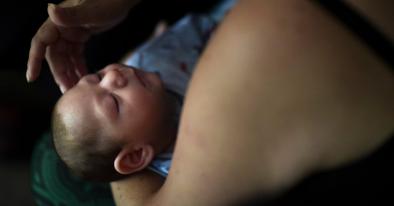Science Source
Vital Signs: Update on Zika Virus–Associated Birth Defects and Evaluation of All U.S. Infants with Congenital Zika Virus Exposure — U.S. Zika Pregnancy Registry, 2016
- States that 1,297 pregnant women in 44 states were reported to the USZPR during the analysis period
- Finds that Zika virus–associated birth defects were reported for 51 (5%) of the 972 fetuses/infants from completed pregnancies with laboratory evidence of possible recent Zika virus infection (95% confidence interval [CI] = 4%–7%); the proportion was higher when restricted to pregnancies with laboratory-confirmed Zika virus infection (24/250 completed pregnancies [10%, 95% CI = 7%–14%])
- Finds that birth defects were reported in 15% (95% CI = 8%–26%) of fetuses/infants of completed pregnancies with confirmed Zika virus infection in the first trimester; among 895 liveborn infants from pregnancies with possible recent Zika virus infection, postnatal neuroimaging was reported for 221 (25%), and Zika virus testing of at least one infant specimen was reported for 585 (65%)
- States that these findings highlight why pregnant women should avoid Zika virus exposure
- States that because the full clinical spectrum of congenital Zika virus infection is not yet known, all infants born to women with laboratory evidence of possible recent Zika virus infection during pregnancy should receive postnatal neuroimaging and Zika virus testing in addition to a comprehensive newborn physical exam and hearing screen
Related Content
Science Source
| The Lancet
El Niño and climate change—contributing factors in the dispersal of Zika virus in the Americas? - The Lancet
Shlomit Paz, Jan C Semenza
Science Source
| Proceedings of the National Academy of Sciences
Global risk model for vector-borne transmission of Zika virus reveals the role of El Niño 2015
Cyril Caminade, Joanne Turner, Soeren Metelmann et al
Headline

Apr 7, 2017 | Carbon Brief
Zika outbreak ‘fuelled by’ El Niño and climate change
Headline

Apr 4, 2017 | The New York Times
One in 10 Pregnant Women With Zika in U.S. Have Babies With Birth Defects


